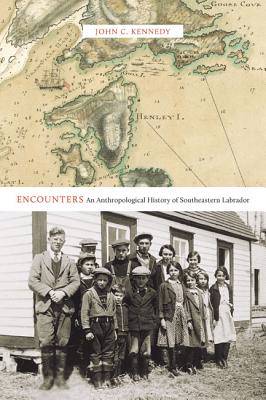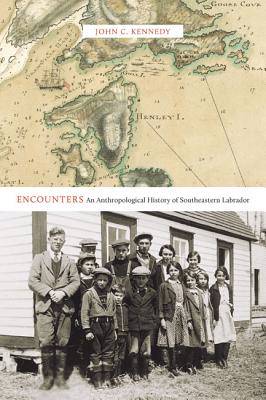
- Afhalen na 1 uur in een winkel met voorraad
- Gratis thuislevering in België vanaf € 30
- Ruim aanbod met 7 miljoen producten
- Afhalen na 1 uur in een winkel met voorraad
- Gratis thuislevering in België vanaf € 30
- Ruim aanbod met 7 miljoen producten
Zoeken
€ 55,45
+ 110 punten
Uitvoering
Omschrijving
Part anthropological history, part informed critique, Encounters examines the relations between the people of southeastern Labrador and the many visitors who have come to fish, heal the sick, and extract the region's resources. John Kennedy presents the latest archaeological, genealogical, and ethno-historical research that changes scholarly understandings of southeastern Labrador. Departing from the conventional view that coastal Labrador has distinct Inuit and non-Inuit regions, he argues that the coast should be viewed as a continuum of Inuitness. Encounters unravels the social implications of the region's complex mercantile fishery, describes how twentieth-century military and resource development have impacted Labrador's seasonal economy, and suggests that Newfoundland continues to use Labrador as a colony. Kennedy uses field research he conducted in 2013 to describe the origins, current economies, and future challenges of the region's tiny villages. Although he is a strong supporter of Aboriginal land claims, Kennedy explores the impact of identity politics in the region, showing how land claims based solely on geography can unintentionally create inequities. Drawing on decades of field and archival research, Kennedy demonstrates how Aboriginal politics are transforming society in southeastern Labrador, empowering local people to overcome the stigmas of history and finally acknowledge their Inuit ancestry.
Specificaties
Betrokkenen
- Auteur(s):
- Uitgeverij:
Inhoud
- Aantal bladzijden:
- 472
- Taal:
- Engels
- Reeks:
Eigenschappen
- Productcode (EAN):
- 9780773544949
- Verschijningsdatum:
- 16/10/2015
- Uitvoering:
- Paperback
- Formaat:
- Trade paperback (VS)
- Afmetingen:
- 150 mm x 226 mm
- Gewicht:
- 771 g

Alleen bij Standaard Boekhandel
+ 110 punten op je klantenkaart van Standaard Boekhandel
Beoordelingen
We publiceren alleen reviews die voldoen aan de voorwaarden voor reviews. Bekijk onze voorwaarden voor reviews.











